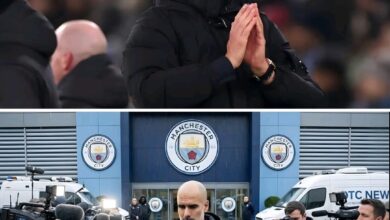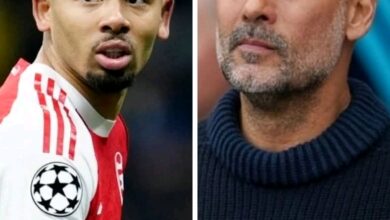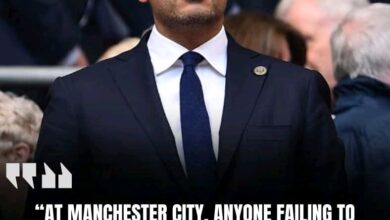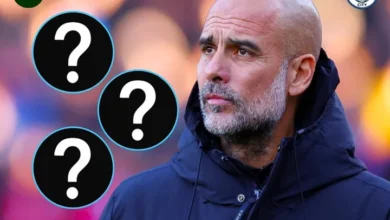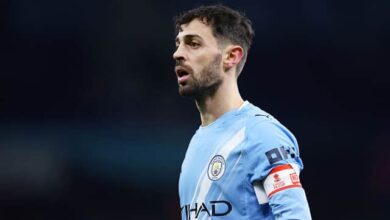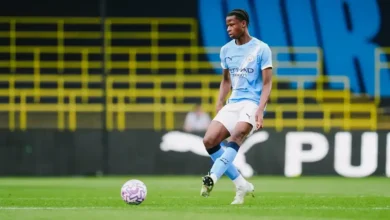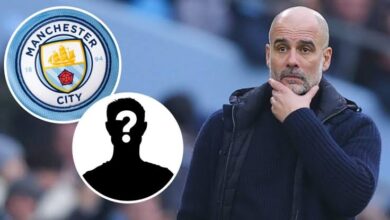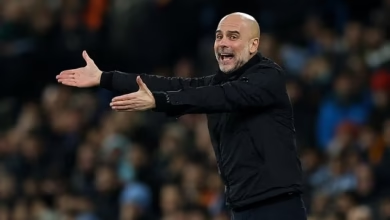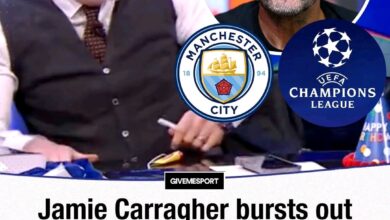Man City to land £20m profit after deal agreed’ – Stefan Borson
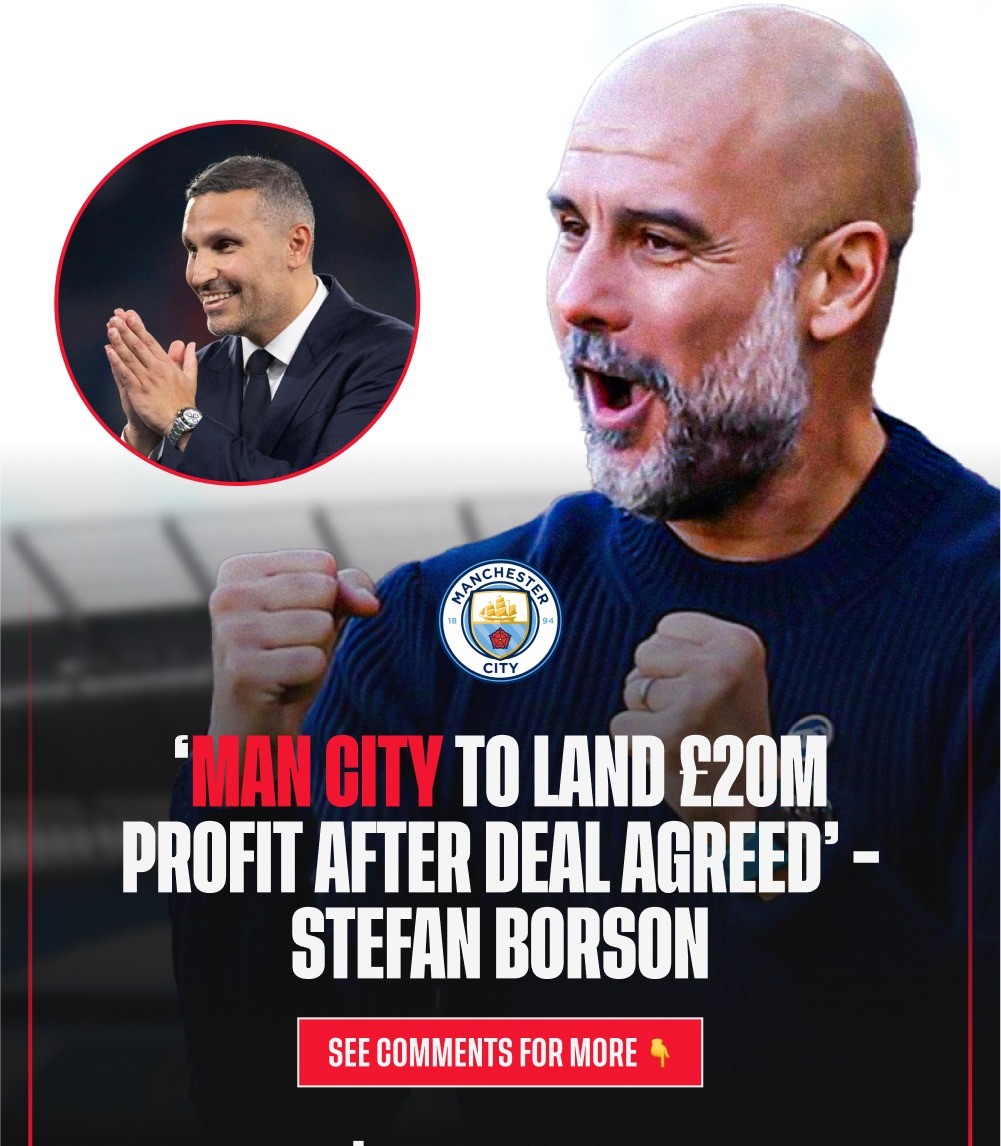
Manchester City’s approach to youth development has evolved into a sophisticated financial strategy that perfectly balances nurturing talent with maintaining fiscal responsibility. Under the ownership of the City Football Group and the tactical guidance of Pep Guardiola, the club has transformed their academy into not just a breeding ground for future stars, but a crucial component of their financial architecture that ensures compliance with Financial Fair Play regulations while providing the resources necessary to compete at the highest level.
The Citizens’ academy system has become increasingly recognized as one of the most productive in European football, consistently producing players who command significant transfer fees in the modern market. This systematic approach to youth development and subsequent player sales has created a sustainable model that allows the club to reinvest in their squad while maintaining the financial flexibility required to operate within the constraints of modern football’s regulatory framework.
Recent Academy Sales: A Testament to Strategic Planning
The summer of 2023 marked a particularly significant period for Manchester City’s academy graduates, with several high-profile departures generating substantial revenue for the club. The sales of Taylor Harwood-Bellis, Tommy Doyle, and Liam Delap collectively brought in more than £40 million, demonstrating the tangible value that the club’s youth development system has created over recent years.
Taylor Harwood-Bellis, the versatile defender who captained England at various youth levels, represented the pinnacle of City’s defensive academy prospects. His development through the ranks at the Etihad showcased the club’s ability to produce technically proficient players who understand the modern game’s demands. The significant fee commanded for his services reflected not only his individual quality but also the reputation that City’s academy has built within the football community.
Tommy Doyle, the grandson of Manchester City legend Mike Doyle, embodied the connection between the club’s past and future. His departure represented more than just a financial transaction; it symbolized the difficult decisions that modern football clubs must make between sentiment and financial pragmatism. The midfielder’s technical ability and understanding of the game, honed through years in City’s system, made him an attractive proposition for clubs seeking players with Premier League potential.
Liam Delap, perhaps the most high-profile of the trio, had long been regarded as one of the most promising strikers in English football. His physical presence, combined with his technical ability and eye for goal, made him a coveted asset. The substantial fee received for his services validated City’s investment in youth development and demonstrated their ability to maximize the value of their academy products.
The Maximo Perrone Case Study: International Talent Development
The anticipated £25 million sale of Maximo Perrone to Como represents a fascinating case study in Manchester City’s approach to international talent acquisition and development. The 22-year-old midfielder’s journey from Velez Sarsfield to the Premier League, and subsequently to Serie A, illustrates the complex pathways that modern footballers navigate in pursuit of regular first-team football.
Perrone’s initial £9 million transfer from Argentina in 2023 was viewed as an investment in potential rather than immediate impact. The South American midfielder possessed the technical attributes and tactical understanding that aligned with Guardiola’s philosophy, but the competitive nature of City’s squad meant that opportunities for regular first-team football were limited. His loan spell at Como provided the perfect environment for continued development while allowing City to assess his progress in European football.
The midfielder’s impressive performances in Serie A, starting 19 of his 25 appearances, demonstrated his ability to adapt to European football’s demands. His consistency and growing influence within Como’s tactical setup enhanced his market value significantly, transforming what was initially a speculative investment into a highly profitable transaction.
Former Manchester City financial adviser Stefan Borson’s analysis of the deal highlighted the strategic nature of the transaction. The projected £20 million book profit from Perrone’s sale exemplifies the club’s ability to identify, develop, and monetize talent effectively. This approach allows City to maintain their competitive edge while ensuring compliance with financial regulations that increasingly scrutinize club spending.
Financial Fair Play and Strategic Squad Building
The revenue generated from academy sales plays a crucial role in Manchester City’s broader financial strategy, particularly in relation to Financial Fair Play (FFP) regulations. These sales provide what accountants term “pure profit” – revenue that directly impacts the club’s financial statements without corresponding depreciation or amortization costs. This type of income is particularly valuable in the current regulatory environment, where clubs must demonstrate financial sustainability while competing for the world’s best players.
The strategic timing of these sales often coincides with the club’s transfer window activities, providing Pep Guardiola with additional resources to strengthen his squad. The £20 million profit from Perrone’s sale, combined with similar gains from other academy graduates, creates a substantial war chest that can be deployed in pursuit of established international stars or promising talents from other clubs.
This financial flexibility has become increasingly important as transfer fees continue to escalate across European football. The ability to generate significant revenue from academy sales allows City to compete with other elite clubs for marquee signings while maintaining the financial discipline required by modern football’s regulatory framework.
The Broader Impact on Squad Dynamics and Team Culture
The successful integration and subsequent sale of academy graduates has created a positive cycle within Manchester City’s organizational culture. Young players arriving at the club understand that there are genuine pathways to first-team football, either at the Etihad or through transfers to other clubs where they can continue their development. This transparency in the pathway to professional football helps attract the best young talents to the club’s academy system.
The knowledge that the club will support their career development, even if it means facilitating moves to other clubs, has enhanced City’s reputation among young players and their representatives. This reputation is crucial in a competitive market where the world’s best young talents have numerous options for their development.
Furthermore, the financial rewards associated with successful academy sales have justified the club’s continued investment in youth development infrastructure. The state-of-the-art facilities at the City Football Academy, combined with world-class coaching and sports science support, represent a significant ongoing investment that is validated by the returns generated through player sales.
Current Season Context and Future Implications
Manchester City’s current position in the Premier League table, sitting third with five Champions League spots available this season, provides context for their continued investment in squad development. The additional Champions League qualification spot for the current season increases the financial rewards for securing European football, making the strategic deployment of transfer funds even more crucial.
The club’s ability to generate revenue through academy sales while maintaining competitive performance demonstrates the effectiveness of their holistic approach to squad building. This model allows for continuous improvement and adaptation without compromising the club’s financial stability or competitive position.
Looking ahead, the success of recent academy sales is likely to influence Manchester City’s approach to youth development and talent acquisition. The proven ability to develop players for profitable sales will encourage continued investment in scouting networks, coaching infrastructure, and player development programs.
Conclusion: A Model for Modern Football Success
Manchester City’s academy sales strategy represents a masterclass in modern football economics. By combining exceptional youth development with strategic financial planning, the club has created a sustainable model that supports both competitive success and financial stability. The substantial profits generated from players like Perrone, Harwood-Bellis, Doyle, and Delap provide the financial foundation for continued investment in the first team while ensuring compliance with increasingly stringent financial regulations.
This approach demonstrates that successful clubs in the modern era must be equally adept at developing talent and managing finances. Manchester City’s ability to excel in both areas has positioned them as a model for other clubs seeking to balance competitive ambition with financial sustainability.
The continued success of this strategy will depend on the club’s ability to maintain the quality of their youth development programs while adapting to the evolving landscape of football regulations and market conditions. However, the evidence from recent years suggests that Manchester City has established a framework that will serve them well in the years to come, providing both the financial resources and talented players necessary for sustained success at the highest level of football.






